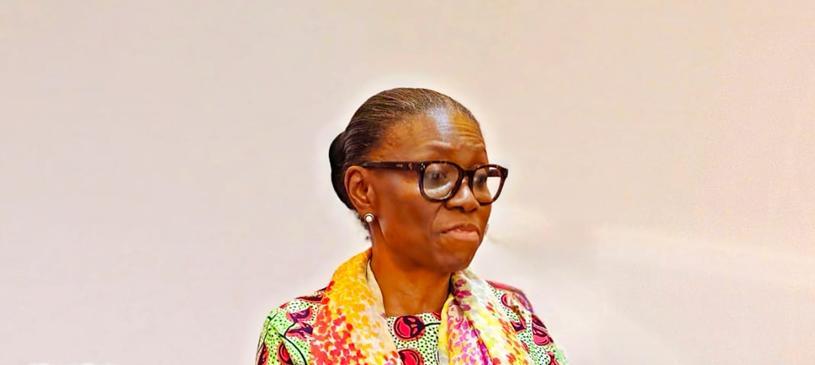Africa-Press – South-Sudan. A senior United Nations official on Tuesday accused South Sudan’s leaders of creating a “man-made” political crisis that has shattered the 2018 peace agreement, fueled a surge in civilian casualties, and pushed the world’s youngest nation toward a catastrophic famine.
Anita Kiki Gbeho, the U.N.’s acting special representative in South Sudan, delivered the stark warning at an emergency meeting of the body monitoring the country’s peace process—its first session since February.
She said the 2018 Revitalized Peace Agreement is “severely fractured” by the warring parties’ “unilateral actions” and “selective adherence.”
“In our analysis, the challenges facing the peace agreement are man-made, fundamentally political, and only resolvable through inclusive dialogue,” Gbeho told the Reconstituted Joint Monitoring and Evaluation Commission (R-JMEC).
The crisis facing the peace agreement in South Sudan, she said, has had devastating consequences. The U.N. Human Rights Office recorded a 59% increase in civilian casualties from January to September compared to the same period last year, driven by aerial bombardments and direct violence between the agreement’s principal signatories.
The political crisis escalated dramatically in March, Gbeho said, when First Vice President Riek Machar, a key signatory of the 2018 peace deal, was placed under house arrest along with other senior members of his opposition party. Their subsequent trial, announced on the eve of the peace deal’s anniversary, has deepened the schism, she added.
“The United Nations remains impartial and committed to supporting the rule of law,” Gbeho stated, while urging that all judicial proceedings “adhere to international standards of fairness, transparency, and due process.”
The political breakdown is exacerbating a severe humanitarian emergency. Gbeho reported that over 497,000 people have been newly displaced this year—nearly 321,000 by conflict and 175,000 by flooding. This is compounded by an influx of refugees from Sudan and other neighboring countries.
Humanitarian access is collapsing, she said. By the end of September, 70 access incidents were reported, more than double the number from September 2024. These incidents are increasingly violent, with aid workers, compounds, and supplies being targeted.
“Without urgent restoration of access, particularly in conflict-affected areas, a full-scale food and nutrition catastrophe is possible,” Gbeho warned.
She called on all armed actors to remove restrictions and ensure the safety of humanitarian workers. With international aid funding shrinking, she said the transitional government must demonstrate its commitment to providing essential services.
Gbeho emphasized that the peace agreement, which the parties themselves negotiated, “remains the only framework for completing an inclusive political transition and achieving lasting peace in South Sudan. There is no alternative.”
She concluded with an urgent call to action, demanding that the parties immediately halt the violence by adhering to a 2017 ceasefire, engage in inclusive dialogue, return to the framework of the 2018 peace agreement, and agree on a clear path to end the transitional period.
“The time for action is now,” Gbeho said. “The people of South Sudan deserve peace, a unified commitment to their safety, security and stability.”
The U.N., she affirmed, remains committed to supporting South Sudan, but a “sense of urgency is required from the parties.”
For More News And Analysis About South-Sudan Follow Africa-Press






